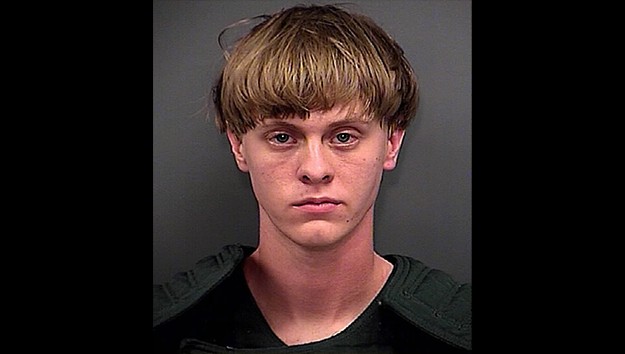
 Charleston County Sheriff(CHARLESTON, S.C.) — The families of the Charleston church shooting victims are recounting their tragic stories of loss and grief to the jurors who will decide whether or not convicted killer Dylann Roof will be sentenced to death.
Charleston County Sheriff(CHARLESTON, S.C.) — The families of the Charleston church shooting victims are recounting their tragic stories of loss and grief to the jurors who will decide whether or not convicted killer Dylann Roof will be sentenced to death.
Roof, who is representing himself for the sentencing phase of his federal trial, spoke for less than five minutes in his opening statement Wednesday, telling the jury there is nothing wrong with him psychologically. Roof did not apologize for his actions.
Last month, the jury found Roof guilty of shooting and killing nine parishioners at a Charleston, South Carolina, church, in June 2015. The 33 federal counts against Roof included hate crimes resulting in death and obstruction of exercise of religion resulting in death.
The government is asking the jury to sentence Roof to death. Assistant U.S. Attorney Nathan Williams Wednesday presented a letter in court that Roof penned six weeks after his arrest, in which he wrote in part, “I have not shed a tear for the innocent people I killed.”
Roof went to the church armed and “with the intent of killing African-Americans engaged in the exercise of their religious beliefs,” according to the federal indictment against him. The church members welcomed Roof into their Bible study, according to the indictment, after which Roof drew a gun and opened fire.
Jennifer Pinckney, wife of slain pastor and South Carolina State Sen. Clementa Pinckney, told the jury Wednesday her husband was a loving, devoted and involved father to their two young daughters.
Jennifer Pinckney and their youngest daughter were at the church the night of the shooting; they were in an office while her husband was at the Bible study. She told the jury how she and her daughter hid under a desk as gunshots rang out; she said they put their hands over each other’s mouths.
Pinckney testified that she heard Roof say he was not crazy and had to do this. She said Roof tried to open the door to where she was, but it was locked.
She said the hardest thing she ever had to do was tell her 6-year-old and 12-year-old that their father had been killed.
Defense attorney David Bruck told the court last month, “He did it … You’re probably wondering, so what we are doing here? Why does there need to be a trial? … The practical reason is that the government has asked for the death penalty after conviction, and because of that, we have a procedure to go through.”
“Our society does not order the death penalty if there are reasons to choose life,” Bruck added. “You’re going to want to understand who this person was and why on earth he would want to cause so much grief.”
Roof also faces a state trial in which he may again face the death penalty.
Copyright © 2017, ABC Radio. All rights reserved.










